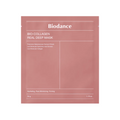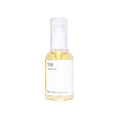Chemical vs. Physical Sunscreens or Hybrid Sunscreens?

Is this the first time you're hearing there are two different types of sunscreen? The difference is more important than you think and could be the main cause of your breakouts. Our skin types and colors all vary, and finding the sunscreen right for your skin is essential to staying protected under the sun.
Physical Sunscreens
Physical sunscreens, aka mineral sunscreens, are made up of fine minerals titanium dioxide and zinc oxide. Upon application, it immediately deflects UVA and UVB rays. It sounds almost too good to be true, but as with most things in life, there are cons. Its major flaw is the tendency of physical sunscreens to leave a white-cast on the surface of the skin. Since it sits on the top of the skin, it is easier to come off and less likely to clog pores. However, that means you'll find yourself needing to re-apply sunscreen every few hours -- not ideal, huh?
Chemical Sunscreens
Chemical sunscreens on the other hand takes a different approach and absorbs the UV rays instead of deflecting it. Chemical sunscreens are made with organic carbon-based compounds that convert the rays into heat, releasing it the heat from the skin. More often than not, they contain skin-benefiting ingredients to help retain moisture, lighten blemishes, and calm sensitive skin. Due to its effective, lightweight and fast-absorbing qualities, the need to re-apply throughout the day is eliminated.
You'll find sunscreens that are a hybrid, considered to be both physical and chemical sunscreens. A great example and a favorite of mine is:
Cosrx Aloe Soothing Sun Cream SPF 50 PA+++

So the question now boils down to, which sunscreen is suitable for your skin? Multiple factors play into the answer such as:
- skin color
- skin type
- skincare routine
That white-cast left behind when using a physical sunscreen can be bothersome, but even more noticeable with darker skin. Especially with re-application, you'll risk having a white-cast on different areas of your face --not cute!
If you have sensitive skin, it is recommended that you use physical sunscreen to avoid bad reactions from the chemical formula of mineral sunscreens. How much products you use and whether you put makeup on also matters. If you wear makeup, you'll want to use chemical sunscreen to avoid ruining your look re-applying and patting on that white-cast. Ultimately, it is agreed that the hybrid sunscreen gives you the greatest protection, minimizing the flaws of both and maximizing its potential.
Now knowing the difference between the two, you should find one that seamlessly fits with your skincare routine without feeling heavy or uncomfortable. Always remember to wear sunscreen regardless of what the weather is and time of the day!












